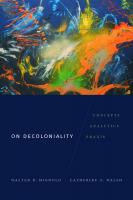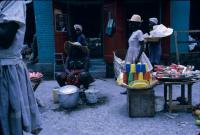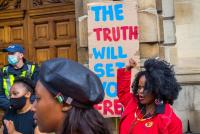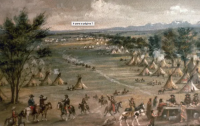Colonialism
Articles tagged with Colonialism
Tag Archive
- (For)getting
- ...
- activism
- african art
- afro-brazilian
- Afro-Port
- agricultural work
- agriculture
- angolan cinema
- art
- Arte Contemporênea
- Artemisa Ferreira
- artwork
- artworks
- association tchiweka de documentation
- Atlas da Solidão
- Batida
- biografia
- Black womanhood
- Boubacar Boris Diop
- branqueamento
- brazilian film
- caboverdiano
- Cape Verde
- CES
- Cheryl Dunye
- Claire
- Claire Andrade-Watkins
- colonização
- coragem
- critica
- Cuba
- cultural spaces
- culture
- decolonising
- édouard glissant
- Epstein
- Falcão Nhaga
- Felix Shumba
- fight
- FLÁVIO CARDOSO
- Frantz Fanon
- Fuck'ing Globo
- German filmmaker
- Globalization
- govern
- Hanami
- havana
- História dos Descobrimentos e da Expansão
- history of Africa
- identity
- ideologia
- ify obi
- imagination
- imperialism
- Jacinto Lemos
- jewish culture
- kurdish
- Language
- Lisbon
- Lunda
- Mais um Dia de Vida: Angola 1975
- Mangueira
- maputo
- Maria Vlachou
- Mário Macilau
- Mattia Denisse
- Mayra Andrade
- menstruation
- mexican
- Mississippi
- Museu afro-brasileiro
- musica africana
- new negro
- Noz de cola
- pandemia
- peinture
- post-colonial
- postcolonialism
- preforming artists
- radio
- Remittances
- reserva
- revista
- revolução
- rijksmuseum
- Rita GT
- Roman Mars
- Romuald Hazoumé
- sequence
- símbolos
- space
- subjectividade
- Ta-Nehisi Coates
- Terceira Metade
- transatlantic slave trade
- undefined
- United States
- William Kentridge
- xxxx
 There is no Afro-Brazilian art student I have met who is not enthusiastic about Mbembe’s thoughts. This is definitely a good sign; an expression of the growing debate about racism, hidden for too long in Brazil. The current political situation does not leave space anymore for denial. It is also a reflection of two factors: firstly, the complexity of the relation between decoloniality and globalisation in the South; and secondly, the relation between publishing policies and the circulation of critical thought.
There is no Afro-Brazilian art student I have met who is not enthusiastic about Mbembe’s thoughts. This is definitely a good sign; an expression of the growing debate about racism, hidden for too long in Brazil. The current political situation does not leave space anymore for denial. It is also a reflection of two factors: firstly, the complexity of the relation between decoloniality and globalisation in the South; and secondly, the relation between publishing policies and the circulation of critical thought.  During the colonial era, the French colonists did not want to share anything with the slaves, including food. As the population grew and grew, the colonizers decided to give the slaves pieces of land called portion de vive which were to be used as a way for them to feed their own families. The producers on this land were so successful that they began to trade what they were growing.
During the colonial era, the French colonists did not want to share anything with the slaves, including food. As the population grew and grew, the colonizers decided to give the slaves pieces of land called portion de vive which were to be used as a way for them to feed their own families. The producers on this land were so successful that they began to trade what they were growing.  As academics, we teach about empire, slavery and colonialism because without them, the world makes no sense. Observing the protests against racism in the streets of the US, UK, Australia and elsewhere feels like watching not only a mass movement, but also a classroom, crackling with intellectual energy.
As academics, we teach about empire, slavery and colonialism because without them, the world makes no sense. Observing the protests against racism in the streets of the US, UK, Australia and elsewhere feels like watching not only a mass movement, but also a classroom, crackling with intellectual energy.  Research finds killing of native people indirectly contributed to a colder period by causing deaths of around 56 million by 1600. European colonization of the Americas resulted in the killing of so many native people that it transformed the environment and caused the Earth’s climate to cool down, new research has found. Settlers killed off huge numbers of people in conflicts and also by spreading disease, which reduced the indigenous population by 90% in the century following Christopher Columbus’s initial journey to the Americas and Caribbean in 1492.
Research finds killing of native people indirectly contributed to a colder period by causing deaths of around 56 million by 1600. European colonization of the Americas resulted in the killing of so many native people that it transformed the environment and caused the Earth’s climate to cool down, new research has found. Settlers killed off huge numbers of people in conflicts and also by spreading disease, which reduced the indigenous population by 90% in the century following Christopher Columbus’s initial journey to the Americas and Caribbean in 1492. 